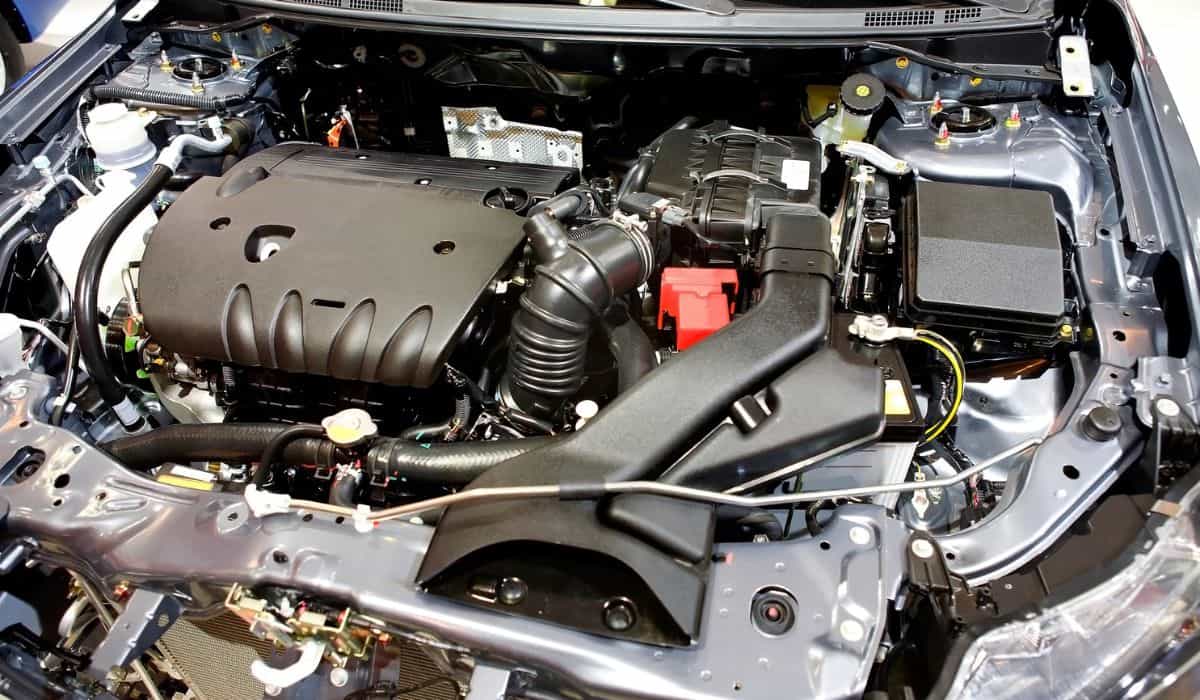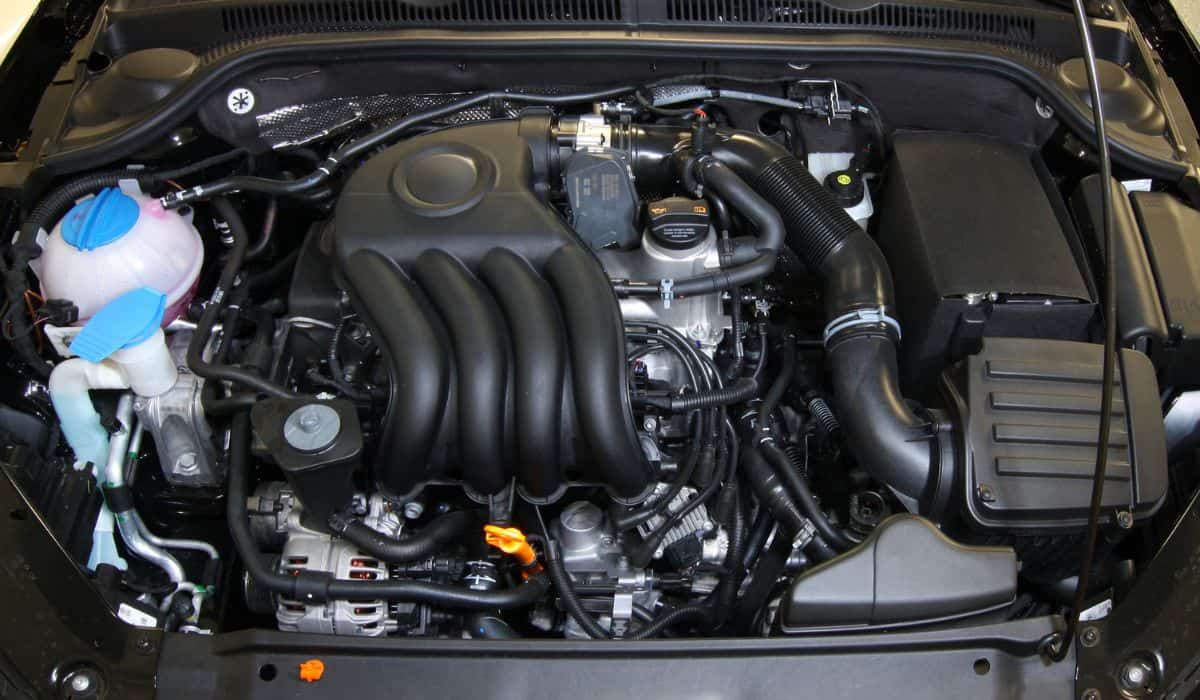Is My Car Engine Original? How To Tell
Understanding a car’s history is crucial to determining its value and condition. However, vehicle history reports and mechanical inspections don’t always tell the whole story. So, how can you determine if your car engine is original?
To see if a car’s engine is the original one, inspect the VIN on the underside of the engine and match it to the VIN near the driver’s side windshield. If the VINs match, it’s the original. Original engines can increase the resale value of classic cars but may have a higher chance of failure.
If you suspect your car has a different engine than you initially thought, it’s not necessarily a bad thing. There’s a lot to consider about the advantages and disadvantages of an engine replacement. Let’s look at everything you need to know to get started.
Why Is an Original Engine Important?

There are several reasons why it’s essential to know if a vehicle’s engine is the original. The engine will impact the value of the car, its history, and the chance of failure. Let’s take a deeper look below.
Original Engines May Increase the Value of Classic Cars
Many buyers shop for classic cars that preserve as many original parts as possible — and that includes the engine, of course. The engine is the vehicle’s most significant component, meaning it significantly impacts the resale value.
Original engines can therefore increase the value of classic cars, like old Corvettes and Mustangs.
The New Engine Might Have Issues
If the original engine was replaced, it’s crucial to understand why. What caused the engine to be replaced? Who replaced the engine, and where was it purchased? Does the new engine have a warranty?
The answers to these questions can impact the value and condition of your vehicle.
For instance, engine replacements by inexperienced enthusiasts may signal issues or future problems. On the other hand, new engine warranties will certainly come in handy if you get into an accident or encounter mechanical issues.
Original Engines Might Have a Higher Chance of Failure
If your vehicle is old, you might want to have it inspected to see if the engine is original and if there are any flaws.
A replacement engine isn’t always a bad sign, as it’s a significant investment and is less likely to encounter issues. Older engines can be more likely to fail or encounter problems than newer models.
How Can I Tell if My Car Engine Has Been Changed?
It’s essential to understand a vehicle’s history, whether you’re buying it used or selling it. In some cases, vehicle history reports and mechanical inspections don’t tell the whole story.
Check the VIN Number
The most reliable way to tell if your car has the original engine is to check the Vehicle Identification Number (VIN). The VIN is a serial code that identifies different components in a vehicle, like the gearbox, chassis, and engine.
To find the VIN, you’ll typically need to jack up the car and inspect the engine bay. You can generally find the VIN on the underside of the engine block. This can be challenging if you’re looking at a used model, but you can ask for the VIN to be sure.
After you find the VIN, you can match it to the VIN on another vehicle component, like the body. The VIN is commonly found on the lower portion of the driver’s side windshield, but this can vary by vehicle.
If the numbers match, then the car has the original engine. If the numbers are different, the vehicle has had an engine replacement. It’s that simple!
Check the Documentation
Another way to check if you have the original engine is to inspect the car’s documentation. Look for the VIN in the car’s documentation and check if it matches the serial code on the engine. If they don’t match, the engine has been replaced.
If there has been a replacement, there should be paperwork to reflect that. Ask the seller for maintenance and service receipts if you can’t find the paperwork. You can inspect these documents for further details.
What Are Signs That the Engine May Not Be Original?

There are a few telltale signs that a vehicle has a different engine, including reshaped cylinders, a new appearance, and various parts. Let’s take a look at these signs in more detail.
The Cylinders Have Been Reshaped
Rebuilt engines may have reshaped cylinders that don’t match the vehicle’s condition. Over time, engine cylinders lose their shape and wear out. Cars with thousands of miles but incredibly smooth cylinders may have rebuilt engines.
That said, inspecting the cylinders by hand can be challenging, so you might want to ask a trusted mechanic for assistance.
The Engine Looks New
One easy-to-spot sign of a new engine is its physical appearance. Vehicles wear out over time, losing their sheen and developing physical blemishes. But if the engine looks much newer than the rest of the car, it may indeed be new or rebuilt.
You might notice that the surrounding components look aged or worn out, but that the engine is in excellent condition. Inspect for differences in paint, scratches, blemishes, and the state of the components. It’s best to double-check with the seller, dealership, or documentation to be sure.
It’s the Wrong Engine
In some cases, you can tell your vehicle has a different engine because it’s not the right type for the model. For instance, finding a V8 engine in a car that’s supposed to have a V6 engine isn’t expected. Although unlikely, these cases would certainly indicate an engine replacement.
The seller might inform you of the engine replacement, depending on the situation. That said, a different engine in your car can impact your insurance fees and performance. The new engine might be less powerful or efficient, depending on the situation.
When to Take Your Vehicle to a Mechanic
Understanding a vehicle’s history is valuable, as it can help you determine the true resale value and potential flaws. But when should you take your car to a mechanic if you suspect a previous engine replacement?
Before You Buy
It’s best to bring a prospective car to a trusted mechanic before you purchase it. The mechanic can inspect the vehicle for any flaws, new parts, or prior engine replacements. They can give you a better idea of the car’s condition and how much it’s worth.
If You Have Incorrect Documentation
It’s not too late to bring your car to a professional mechanic after you purchase it. If you suspect your vehicle has a different engine or you notice incorrect documentation, bring it to a trusted shop. Even if it’s in working condition, it’s better to understand the history and state of the car.
If You Encounter Problems
Lastly, bring your car to a trusted mechanic if you encounter problems or notice physical discrepancies.
The mechanic can diagnose issues and determine whether you have the original engine. You can thereby avoid potential problems before they get out of hand and become expensive repairs down the line.
